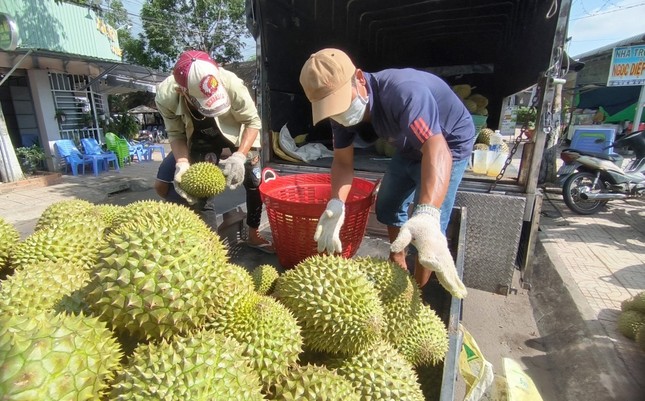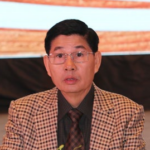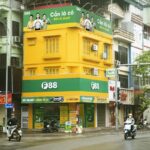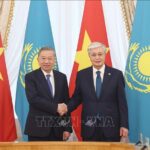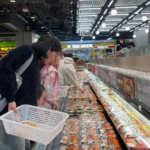Plummeting Exports: Addressing the Sudden Downturn in Durian Exports from Vietnam
Durian, with its unique flavor and high nutritional value, is no longer a strange fruit to consumers at home and abroad. This Vietnamese fruit is conquering international markets.
In 2024, durian exports reached a record high of 3.3 billion USD, making it Vietnam’s highest-value fruit export. China, the main consumer market, maintained its demand for fresh durian and started opening up to frozen products, raising expectations for robust growth.
However, in the first four months of 2025, durian exports witnessed a surprising downturn, with total revenue reaching only 120-130 million USD, equivalent to 35,000 tons, which is just 20% of the set plan. This is the most significant decline in the last three years, creating a ripple effect beyond exports, pulling down the value of the entire industry.
In early May, as durian season started, domestic durian prices plummeted, reaching as low as 30,000 VND/kg in some places—the lowest in a decade. In many provinces in the Mekong Delta, farmers, facing the situation of ripe durians falling from trees with no traders buying, had to sell them along national highways.
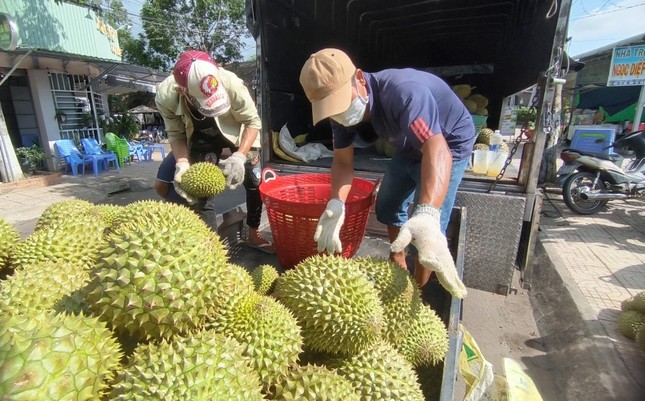
Vietnamese durian faces challenges in exporting to China. Illustrative image: IT.
The root causes go beyond technical requirements, such as the lack of region codes, standardized packaging facilities, or quality inspection systems, to meet the demands of the Chinese market. Vietnam is also facing fierce competition from neighboring countries.
Thailand, the largest durian exporter to China, is in its peak harvest season. Malaysia has developed a production system targeting the premium market in China, with naturally ripened durians transported by air to reach Chinese consumers within 48 hours.
Laos is strategically planning its planting areas to become a significant durian supplier to China. Indonesia, the world’s largest durian producer, is in the final stages of completing its legal dossier to officially enter the Chinese market.
Against this backdrop, Vietnam’s weaknesses in legal frameworks, quarantine procedures, and product quality become more apparent. When buyers set stringent requirements, a lack of thorough preparation becomes the most significant bottleneck blocking export flows. Without decisive and synchronized actions, Vietnamese durian risks losing its position in the largest Asian market.
What Actions Should Be Taken?
Facing these challenges, Mr. Do Duc Duy, the Minister of Agriculture and Environment, directed the implementation of a series of urgent and long-term solutions to rescue the durian market.
In the short term, close coordination with the General Administration of Customs of China is a top priority to overcome technical obstacles, the most significant barrier to product clearance. Simultaneously, the process of assigning region codes, approving packaging facilities, and establishing internationally recognized laboratories will be accelerated to meet the requirements of Chinese buyers.
In the long term, the Ministry aims to build a clear legal framework and standardize the entire value chain, from production and processing to exports. The technical standards system will be improved to enhance quality, reduce reliance on the fresh market, and gradually develop deep-processed products like frozen durian. This strategy is considered a sustainable approach to “weather the storm,” adding value, and expanding markets amid intensifying competition.
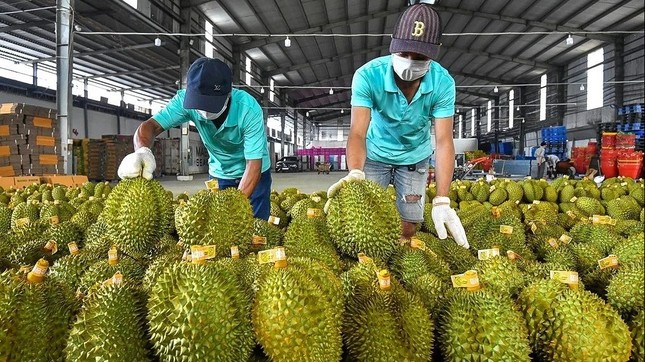
The Ministry of Agriculture and Environment proposes a range of solutions to revive durian exports. Illustrative image: IT.
Notably, the Minister also requested the urgent issuance of a circular guiding the procedure for assigning region codes and packaging facilities—two crucial factors for Vietnamese durian to enter the official channel. Additionally, specialized agencies need to establish a well-organized program for quality control and food safety that aligns with international practices. Holding a conference among enterprises, local authorities, and management agencies is also proposed as a foundation for building consensus and a unified direction of action.
Beyond domestic efforts, the Ministry of Agriculture and Environment is actively preparing for a working trip to China to discuss a comprehensive cooperation program in agriculture and the environment, with durian as one of the key focuses to reach a mutual understanding.
The current situation serves as a clear reminder that we cannot rely on “hot” growth but need a deep-rooted development foundation, a robust legal framework, and close collaboration among management agencies, enterprises, and farmers. This is the only way to maintain the position of Vietnamese durian on the global agricultural map.
The Independent Director’s Resignation from Phu Tai’s Board: A Scandal Unveiled
The Ho Chi Minh City Stock Exchange-listed Phu Tai JSC (HOSE: PTB) has received the resignation of Mr. Do Xuan Lap, an independent member of the Board of Directors. Prior to his resignation, Mr. Lap was arrested and detained for four months in connection with an illegal gambling operation in Ho Chi Minh City.
What Was F88’s Business Model Before Going Public?
“F88, a familiar name in the industry, has officially become a public company and is preparing for its UPCoM listing. This significant move has sparked questions among investors and market observers alike: Is F88 truly ready for the stock market? With its transition into the public eye, F88 enters a new phase, inviting scrutiny and high expectations.”
Elevating Vietnam-Kazakhstan Relations to Strategic Partnership
Upon the invitation of Kassym-Jomart Tokayev, President of the Republic of Kazakhstan, General Secretary To Lam and his spouse, along with a high-ranking delegation from Vietnam, paid a state visit to the Republic of Kazakhstan from May 5 to 7, 2025. On the morning of May 6, following a grand state welcoming ceremony at the Presidential Palace, General Secretary To Lam held talks with President Kassym-Jomart Tokayev.
The Retail Giants of Japan and Thailand: A Race to Conquer the Vietnamese Market
The Vietnamese retail market is witnessing a surge in investments from regional retail giants, particularly from Japan and Thailand. With its large and young population, Vietnam has become an attractive prospect for foreign retailers vying for a share of this lucrative market.
Police Launch Major Crackdown on Fake Milk and Medicine: 33 Charged in Three Serious Cases
“In response to the shocking milk and medicine counterfeit scandals, Vietnam’s Ministry of Public Security has taken decisive action. They have prosecuted 33 suspects, addressing not only the counterfeiting but also tax evasion totaling over 121 billion VND through the maintenance of two separate accounting systems.”

